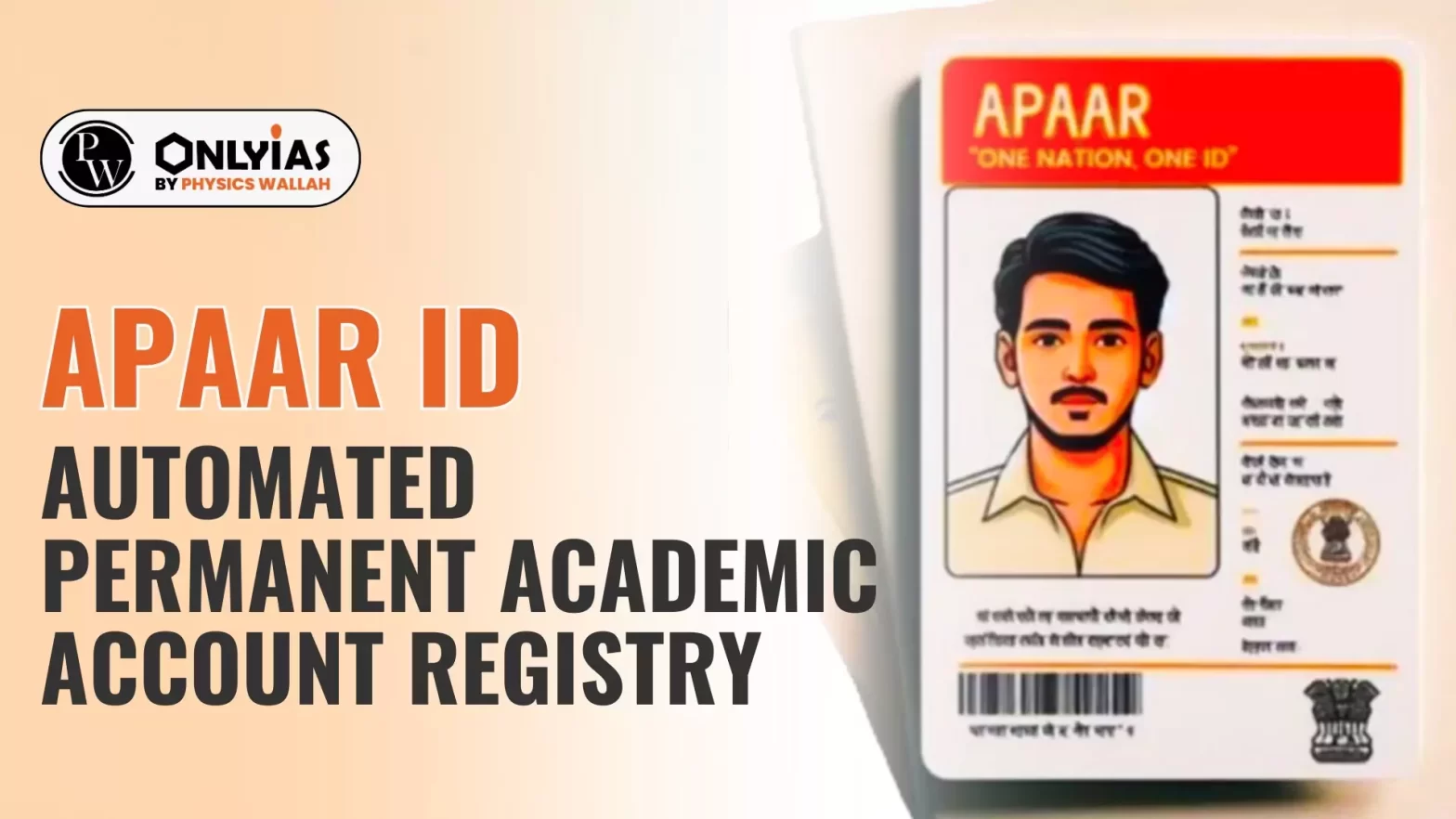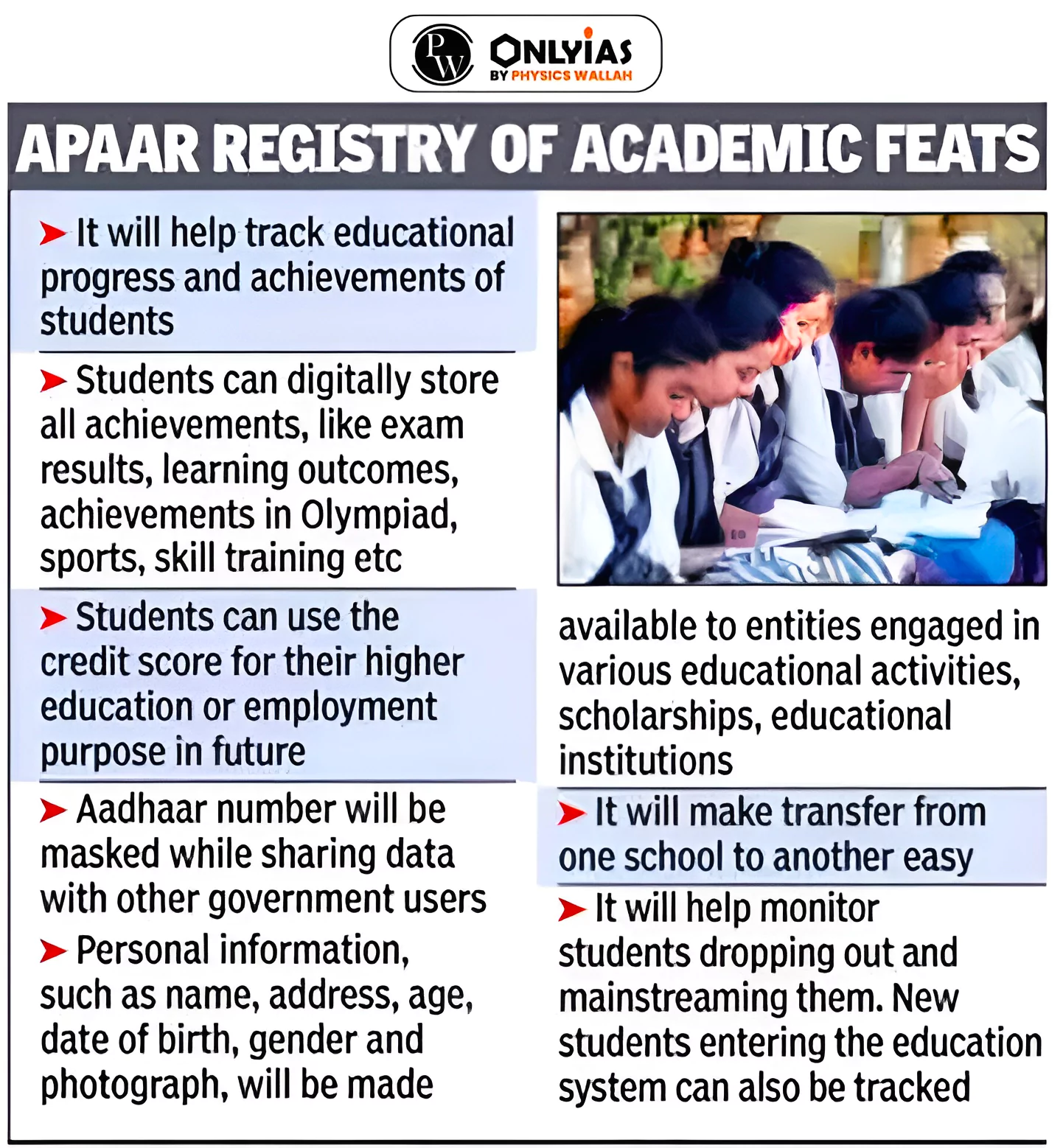![]() 15 Feb 2024
15 Feb 2024

This article is based on the news “Education Minister says APAAR to be aspirational and global document for students in India” which was published in the All India Radio. At the national conference on ‘APAAR ID: One Nation One Student ID Card’, it was revealed that about 25 crore Automated Permanent Academic Account Registry (APAAR) have been created.

Academic Bank of Credits (ABC)It is envisaged as per the National Education Policy 2020. It facilitates the academic mobility of students with the freedom to study across the Higher Education Institutions in the country with an appropriate “credit transfer” mechanism from one programme to another, leading to attain a Degree/ Diploma/PG-diploma, etc. Features:
Also Read: More Subjects, Credit System |
|---|
| Must Read | |
| NCERT Notes For UPSC | UPSC Daily Current Affairs |
| UPSC Blogs | UPSC Daily Editorials |
| Daily Current Affairs Quiz | Daily Main Answer Writing |
| UPSC Mains Previous Year Papers | UPSC Test Series 2024 |
<div class="new-fform">
</div>